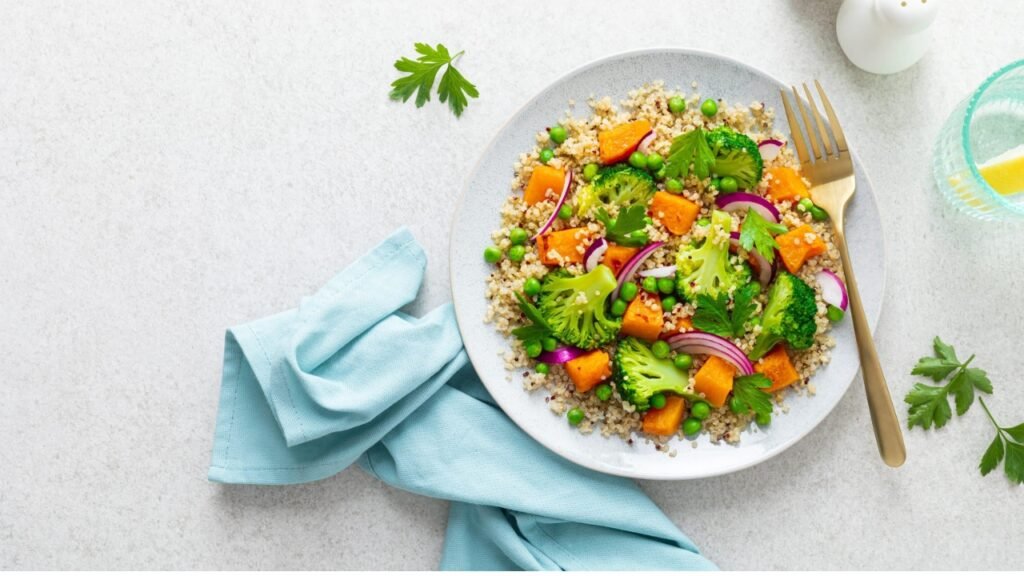In the pursuit of a healthier lifestyle, many Americans are embracing vegetarian diets for ethical, environmental, and health reasons. However, one common challenge that often arises is how to consume adequate protein, especially when aiming for a high-protein intake like 150 grams per day. The 150g protein vegetarian diet is gaining traction as a practical approach to support muscle growth, weight management, and overall well-being without relying on meat. This article will explore how to effectively meet these protein goals within a vegetarian framework, backed by scientific evidence and expert insights.
Understanding Protein Needs in a Vegetarian Lifestyle
Protein is an essential macronutrient vital for muscle repair, hormone production, and immune function. For active individuals or those looking to build lean muscle, consuming around 150 grams of protein daily can be beneficial. While this amount is often associated with meat-based diets, vegetarians can also meet and exceed this target with careful planning.
The key to success lies in diversifying protein sources. Plant-based proteins such as legumes, tofu, tempeh, seitan, quinoa, and nuts provide not only ample protein but also fiber, vitamins, and minerals. Additionally, combining complementary proteins — for example, rice and beans — ensures the intake of all essential amino acids.
The Science Behind a High-Protein Vegetarian Diet
Research indicates that plant proteins can be just as effective as animal proteins when consumed in adequate amounts. A study published in the Journal of Nutrition highlights that vegetarians consuming higher levels of plant protein can achieve similar muscle synthesis compared to omnivores, provided total protein intake is sufficient (Gorissen et al., 2018).
Moreover, high-protein vegetarian diets may offer added cardiovascular benefits, including lower cholesterol levels and reduced risk of hypertension. This dual advantage supports not only fitness goals but also long-term health.
How to Build a 150g Protein Vegetarian Diet
Achieving 150g of protein daily on a vegetarian diet requires a strategic approach, balancing whole foods and convenient protein-rich options. Start your day with a breakfast rich in plant protein, such as a smoothie with pea protein powder, almond butter, and chia seeds. For lunch and dinner, incorporate dishes centered around lentils, chickpeas, or tofu, complemented with quinoa or whole-grain bread.
Snacks are also an opportunity to boost protein intake; consider roasted chickpeas, edamame, or Greek yogurt (for lacto-vegetarians). Additionally, plant-based protein supplements, like pea, hemp, or brown rice protein powders, can fill gaps, especially for athletes or those with higher demands.
Expert Insight
“Vegetarian diets can easily support high protein goals when planned with attention to variety and nutrient density. Incorporating diverse sources throughout the day maximizes absorption and keeps meals enjoyable.”
— Nutritionist Dr. Emily Rosenfeld
Common Challenges and How to Overcome Them
One hurdle vegetarians face in hitting 150g protein is the lower protein density of many plant foods compared to animal products. This often means consuming larger portions or more frequent meals. However, this challenge can be mitigated by focusing on concentrated sources like seitan, which boasts approximately 21 grams of protein per 3 ounces, or tempeh, a fermented soy product high in protein and probiotics.
Another concern is ensuring adequate intake of essential amino acids. Unlike animal proteins, some plant proteins are incomplete but pairing legumes with grains or seeds completes the amino acid profile. For example, a meal combining black beans with brown rice ensures all nine essential amino acids.
Digestive comfort can also be a factor; incorporating fermented foods like tempeh or using digestive aids such as soaking and sprouting beans can enhance nutrient availability and reduce discomfort.
Nutrient Balance Beyond Protein
While focusing on protein is important, a well-rounded vegetarian diet also emphasizes other nutrients often less abundant in plant-based diets, including vitamin B12, iron, omega-3 fatty acids, and calcium. Fortified foods, supplements, and careful food choices are essential to prevent deficiencies.
For instance, consuming vitamin C-rich foods alongside iron-rich plants (like spinach or lentils) significantly improves iron absorption. Likewise, including sources of alpha-linolenic acid (ALA) such as flaxseeds or walnuts supports omega-3 needs.
Long-Term Health Benefits of a High-Protein Vegetarian Diet
Adopting a 150g protein vegetarian diet does not just support muscle and fitness goals; it may contribute to longevity and disease prevention. According to a review in Nutrients (2020), high-protein plant-based diets are associated with lower incidence of type 2 diabetes, improved kidney function, and reduced inflammation.
Moreover, this diet supports sustainable eating patterns, reducing environmental impact while nourishing the body.
Conclusion: Embracing a Balanced, Protein-Rich Vegetarian Lifestyle
In summary, meeting the demands of a 150g protein vegetarian diet is entirely achievable and beneficial for many Americans seeking health, fitness, and ethical eating. By embracing a variety of plant proteins, planning meals strategically, and staying mindful of nutrient balance, vegetarians can thrive on high-protein diets.
As the trend toward plant-based nutrition continues to grow, so does the evidence that protein needs can be met without compromise. Whether you are an athlete, a health enthusiast, or simply exploring vegetarianism, the 150g protein vegetarian diet offers a sustainable, nourishing, and effective approach to wellness.


